Toolbox in Action
Explore how participatory meanwhile interventions unfolded in the context of seven regeneration initiatives across Europe & Asia.
Particularly suggested for policy-makers, practitioners, and researchers.
Highlights
Trafaria Lisbon
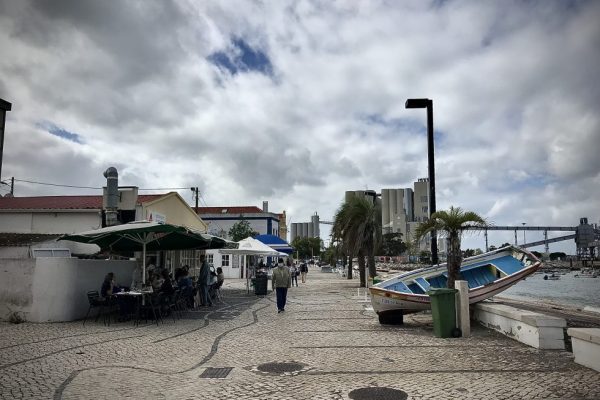
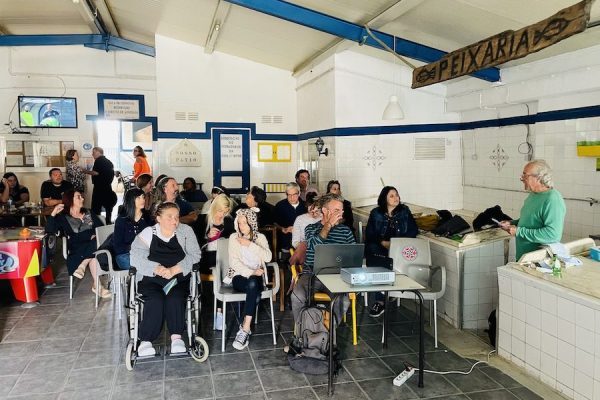
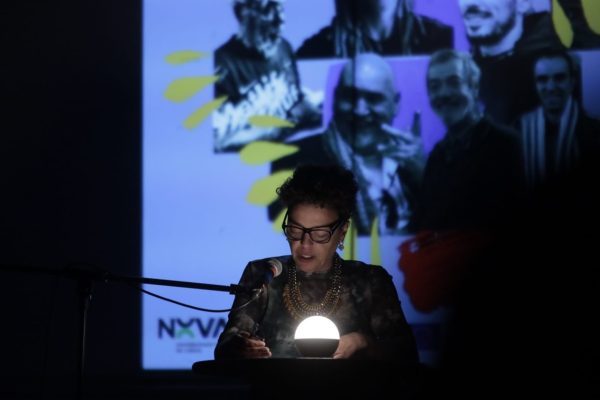
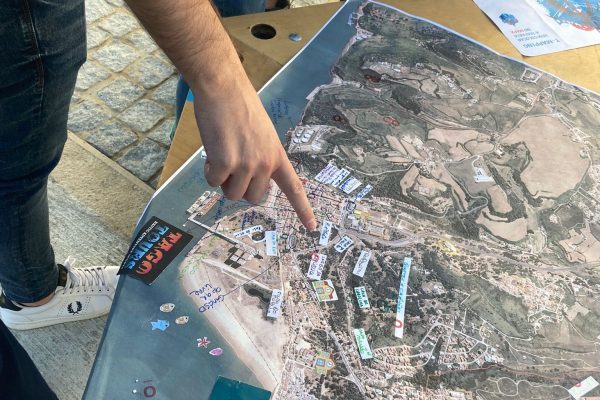
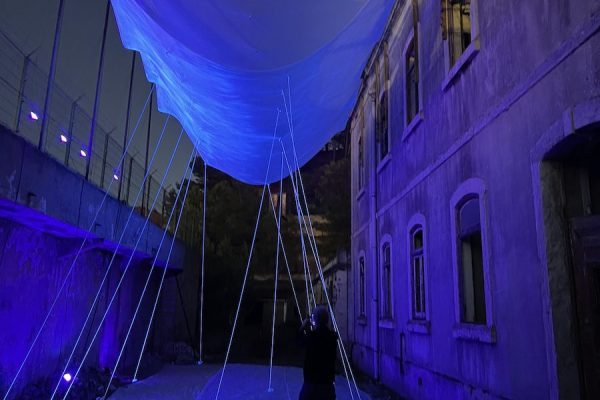
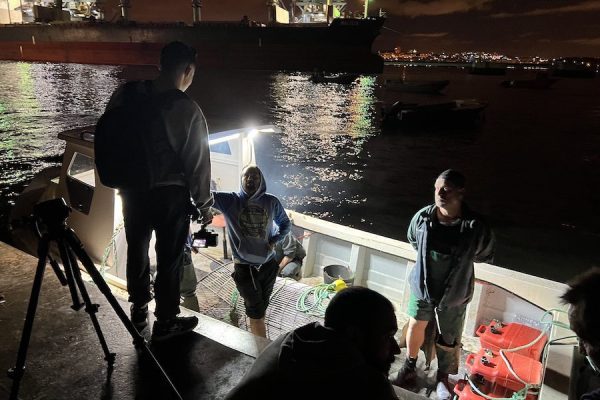
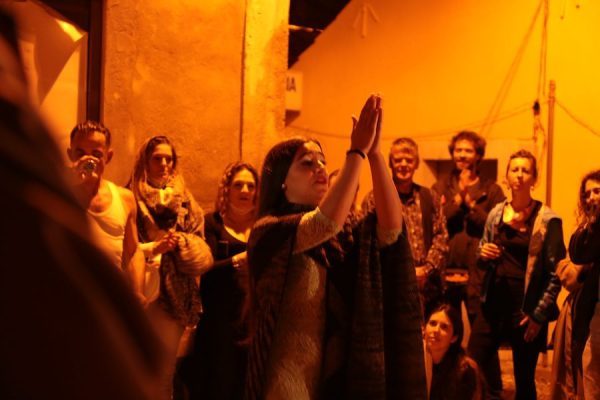
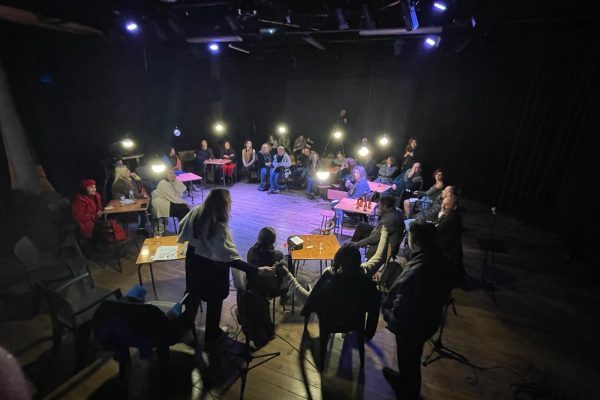
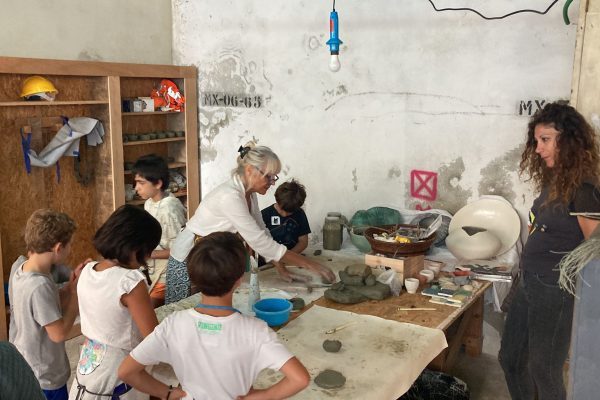
Extract of an interview with T-Factor team members from NOVA University, December 2023.
Community Understanding and Engagement
‘From the outset, a key challenge was pinpointing the exact makeup of the Trafaria community. Despite being a quaint village, Trafaria stretches across a vast territory. It boasts a central hub with unique attributes, but also encompasses distinct sub-communities. In the early stages, we made significant strides in mapping these communities to ensure every voice was heard. Another hurdle was the lack of interaction among the three main communities. Our project facilitated opportunities for these disparate groups to connect. Complicating matters further, the region was experiencing change due to increasing tourist influx. This meant that we weren’t working with static communities; they were continually evolving and adapting, which remains a persistent challenge.’
Collaboration with the Municipality
‘Establishing the right point of contact has consistently been a challenge. Our own delays, particularly concerning the main building’s construction, have further complicated matters. While we’ve received assistance and feedback from the municipality, the relationship isn’t as robust as we’d like. The nature of our interactions seems contingent on whom we’re talking to. For instance, organising the residency was a smooth process, with the municipality being very supportive. Similarly, procuring materials from the local municipality went without a hitch. However, other activities have proved more time-consuming. When it comes to infrastructural changes, such as modifying the landscape or enhancing public Wi-Fi networks, the process tends to be protracted. Lengthy discussions on improving public transportation and other initiatives, though not directly tied to our project, are vital for the community. Unfortunately, these broader topics, which could significantly impact residents’ lives, remain areas where our influence is limited.’
Slam workshops and engagement evolution
‘We initiated a series of workshops focused on slam poetry in Trafaria, targeting professionals, educators, and facilitators. One of our PhD students played a pivotal role in popularising the concept of slam poetry among the youth. Her efforts drew participants from the local communities and from our faculty. Throughout the sessions, attendees were tutored in crafting poems and honing their performance skills. Following this intensive training, an informal internal competition was held among the participants, allowing them to showcase what they had learned. The culmination was a public competition hosted at the “Casino,” an old theatre in Trafaria. With its vibrant stage, it served as the perfect backdrop for the event. The entire experience was truly enriching and resonated well with the local spirit. The event was such a hit that spectators crowded outside, peering in through windows, as there wasn’t any seating left inside. The following year mirrored this success, with the event being held again between May and June. The participants expressed a desire to make the event annual. They even introduced badges, coining the term “Trafaria Slam” and labelling the event as the “Festival of the Slam.” While we facilitated the event’s second year, the participants took the reins this year, navigating all the challenges that came their way. Impressively, they even ventured into national competitions. In a proud moment for us, one participant from our 2022 cohort clinched the top spot in a national competition. With this success behind us, we immediately delved into our next initiative, which ran concurrently.’O
Podcast series
‘Among our recent and long-term initiatives, the podcast stands out as especially significant. We initiated a series of 12 podcasts, planned over several months by Marta Miranda. Given her outstanding work with Fadiajen, she undertook this project with the aim of interviewing and celebrating notable personalities from the area. After extensive discussions with candidates, Marta shortlisted 12 individuals. Each week, a new episode featuring one of these personalities was released. Each podcast episode was recorded by Marta in a private, intimate setting to ensure the interviewees felt comfortable. A unique challenge emerged, many of the elderly individuals in the area, some of whom were featured in the podcasts, did not own smartphones. Consequently, they were unfamiliar with the concept of podcasts and wouldn’t be able to hear their own interviews. To address this, we decided to host live listening sessions on the day each episode was aired. The inaugural session was held at the local library, attended by the president of the local council. The overwhelming emotional response and sheer joy of the participants led us to host live sessions for subsequent episodes as well. All episodes of the podcast series are available online. While I mostly used my personal devices for filming and photography, the first Fadiajen was professionally recorded thanks to the help of a doctoral student. For other events like the Slam poetry and podcast sessions, we made do with modest resources, primarily iPhones’.
Navigating uncertainties
‘The shift in the project’s trajectory underscores the adaptability required in academic and community engagement projects. We’ve managed to devise a strategy to sustain certain activities by integrating them into new projects, particularly due to our school’s proximity. Although the physical establishment of the Institute might deviate from the initial plan, our commitment to the region remains steadfast. While we may not have the primary building there, our engagement in Trafaria is projected to continue for the foreseeable future, at least for the next two to three years. Our familiarity with the locale, its spaces, and its people facilitates this ongoing commitment. The fate of our involvement also hinges on the overarching direction the Institute takes. If it veers away from our school and Trafaria, the nature of our involvement might change. However, given that a definitive alternate location for the Institute hasn’t been established, our plans for Trafaria remain in place. We intend to press forward with activities that originated during the T-factor initiative and adapt them as needed. The relationships we’ve built have fostered a genuine desire to continue collaborating, even on a personal level. This bond is a testament to the substantial investment and commitment we’ve made to the community.’
Gentrification
‘Trafaria holds significant importance due to its strategic location, connecting Almada to the seashore. Understanding the geography of the area is crucial as a vast portion of the local income is derived from the seashore, which falls under the Trafaria-Caparica local council’s jurisdiction. This underscores the intricate dynamics and potential challenges within the municipality. Trafaria presents an intriguing scenario where it witnesses a substantial influx of visitors, yet many of them don’t reside there, making it akin to a “floating world” within the municipality. Indeed, one of the significant concerns, both for its potential benefits and drawbacks, is the rapid gentrification in the area. On weekends, there’s a noticeable influx of visitors who aren’t local residents. The allure of the river, especially during pleasant weather, draws many tourists. Consequently, there has been a surge in property purchases, particularly by these outsiders. Our goal has been to foster a resilient community capable of resisting the looming gentrification. Unfortunately, the municipality seems to have an underlying desire to cater to the affluent by selling historically less expensive homes. Over time, this could leave Trafaria with numerous vacant properties, potentially making way for developments that don’t align with the community’s interests or history. There appears to be a disconnect between what Trafaria residents desire and the broader objectives of the Almada municipality.’
.
Privacy Overview
| Cookie | Duration | Description |
|---|---|---|
| cookielawinfo-checkbox-analytics | 11 months | This cookie is set by GDPR Cookie Consent plugin. The cookie is used to store the user consent for the cookies in the category "Analytics". |
| cookielawinfo-checkbox-necessary | 11 months | This cookie is set by GDPR Cookie Consent plugin. The cookies is used to store the user consent for the cookies in the category "Necessary". |
| CookieLawInfoConsent | 1 year | Used to save user's preferences about the cookies. |
| PHPSESSID | session | Preserves user session state across page requests. |
| viewed_cookie_policy | 11 months | The cookie is set by the GDPR Cookie Consent plugin and is used to store whether or not user has consented to the use of cookies. It does not store any personal data. |
| Cookie | Duration | Description |
|---|---|---|
| _ga | 2 years | This cookie is set by Google Analytics. It is used to identify unique users and it expires after 2 years. |
| _gat | 1 minute | This cookie is set by Google Analytics. It is used to by Google Analytics to throttle request rate. |
| _gid | 24 hours | This cookie is set by Google Analytics. It is used to identify unique users and it expires after 24 hours. |